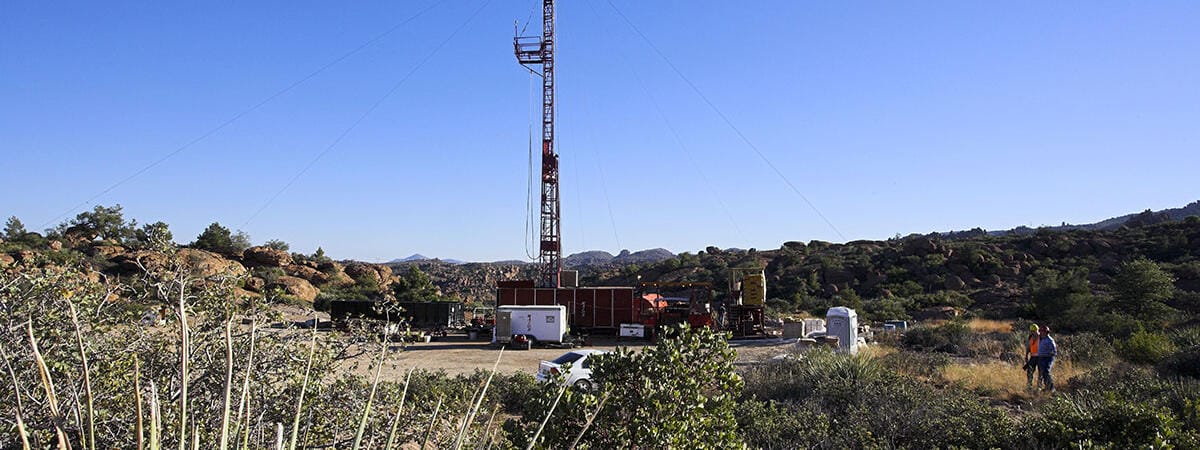(Photo via Resolution Copper)
(Disclosure: Rose Law Group represents Resolution Copper.)
By David Sowders | Silver Belt
For now, a proposed Congressional measure that aims to block Rio Tinto’s Resolution Copper Mine project is tied to the fate of a $3.5-trillion budget reconciliation bill; meanwhile, the U.S. Forest Service is looking to restart consultations with Native American tribes on the project.
On Sept. 9 the U.S. House of Representatives Natural Resources Committee voted to include H.R. 1884, also known as the Save Oak Flat Act, in the larger reconciliation package. That package was approved by the House Budget Committee on Sept. 25, and now goes to the full House for consideration.
If approved, H.R. 1884 would overturn a 2014 bipartisan federal decision authorizing a land swap that would transfer public land on the proposed mine site to Rio Tinto, who would operate the mine with BHP as a partner, in exchange for company-owned acreage. The action gained final approval in January but was then reversed by President Joe Biden, leaving the Resolution Mine’s future unclear. The San Carlos Apache Tribe asserts that the Resolution Copper Mine would destroy sacred ground around Oak Flat where some of the Apache people hold religious ceremonies.
The full House could reverse the committee’s move, dropping H.R. 1884 from the reconciliation package, and the fate of Senate legislation to block the mine is uncertain. “We are monitoring the ongoing process to finalize the reconciliation bill, as we continue to consult with local communities and Native American Tribes to guide further shaping of the Resolution Copper project and the significant benefits it will deliver,” said a Resolution Copper spokesperson.








